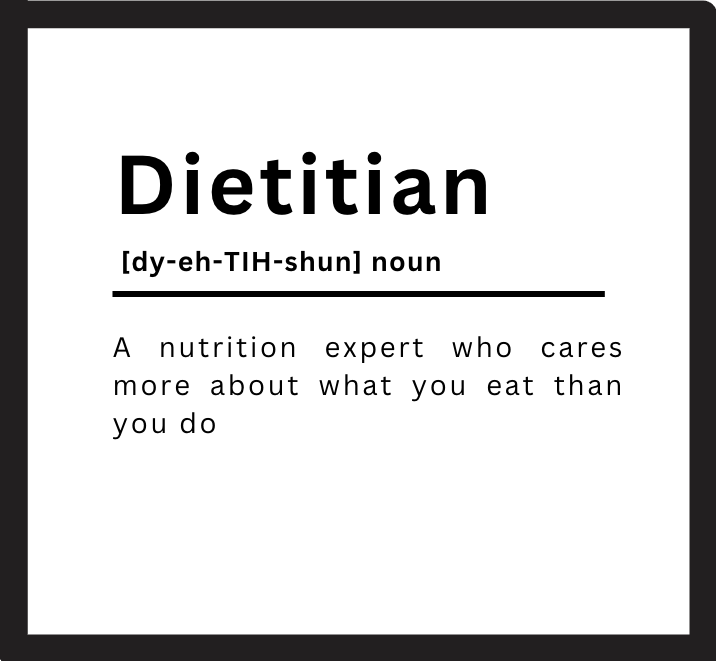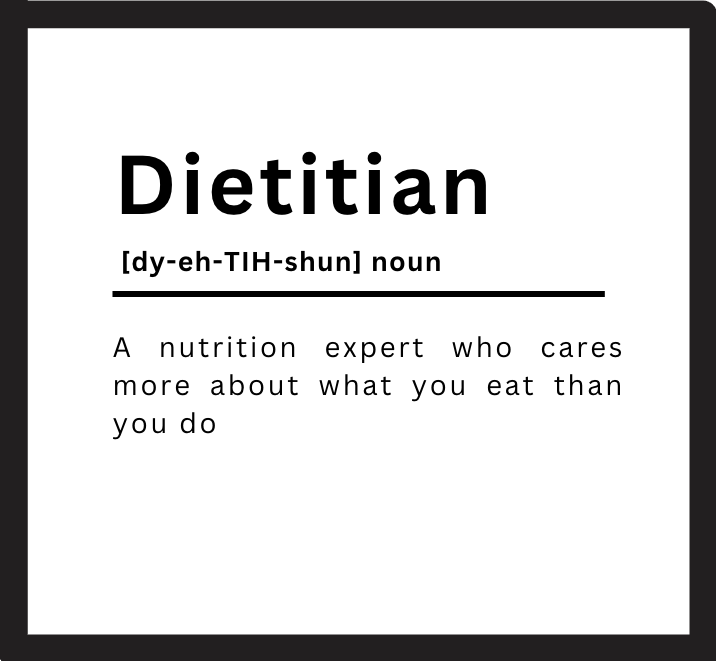What is a dietitian?
What actually is a dietitian? What is the difference between a dietitian and a nutritionist? Do they tell you which diet to be on? Is it true that they are the food police? Why would I need to see one?
These are all the common questions and assumptions people have about what a dietitian is. In this post, I will answer all of these questions and shed some light on what it actually means to be a dietitian.

Why did I choose dietetics?
Firstly, what made me want to become a dietitian? School gets you thinking about career options nice and early in year 10. I remember doing a bunch of online quizzes about what career option would best suit my strengths, personality and passions. While these quizzes are fun, they are so limited.
In about year 11, I remember watching a documentary on Netflix called Cowspiracy (I know, I know, very biased show, but yes, my interest sparked from here), and I began reading nutrition related books and exploring plant-based diets. I found the whole world of nutrition so intriguing and wanted to know more. I was very interested in the role of nutrition and chronic illness prevention, which is still my main interest. I am also interested in making the food system more sustainable.
Anyway, throwback to when things are getting real in year 12, I rolled with this nutrition interest and applied for nutrition and dietetic university courses. I did not think I would get into dietetics because it was a difficult course to get into, but I threw it in there anyways to see what would happened and turns out I made it into dietetics and haven’t looked back since!
Firstly, what is a diet?
To understand what a dietitian is, it can help to understand what a diet is. A diet is simply, the food consumed by an individual.
Officially it is defined as ‘the kinds of food that a person, animal, or community habitually eat’.
Often, we think of diet as ‘low carb’, ‘high protein’, ‘keto’, ‘paleo’, ‘gluten free’ ect ect. While these diets do describe what an individual consumes, it is highly unlikely you will be prescribed a restrictive FAD type diet by a dietitian. This is because 99% of FAD diets are not based on sufficient evidence, are not sustainable long term and are often unhealthy in the long term. This in itself is a topic for another time.
A dietitian may encourage you to change your diet patterns towards a more nutritious and balanced way of eating, but no stereotypical diet per se.
In the hospital setting, depending on what you are administered for, there are certain diets you will be prescribed to meet the energy needs for that condition.

What does a dietitian do?
A dietitian provides personalised nutrition advice to help improve lifestyles and/ or manage medical conditions. They can work in many different roles and settings including private practice, hospitals, community, food service, and specialise in certain populations.
What is the difference between a Dietitian and a Nutritionist?
Nutritionists can provide general health advise, like dietitians, however, dietitians undergo an additional year of study and can work in additional workplaces such as hospitals and therefore can provide medical related advice.
Who would need to see a dietitian?
Anybody can!
You may have concerns about your health, want healthy eating strategies, or have more complex conditions such as high blood pressure, high cholesterol, heart disease, diabetes, cancer, or stroke. Your medical practitioner may refer you to see one, you might be assigned a dietitian if you are unfortunately in hospital, or you could actively book in with one yourself. They will likely assess your food intake and come up with personalised goals and strategies for you and your situation.
Are Dietitians Judgy?
No!
Well, of course a dietitian is going to look at your diet in detail and give you personalised advice to make improvements, which may equate to judging, but it won’t be delivered in a judgemental and unrealistic way. They will WORK WITH YOU to create sustainable changes to your diet that you agree on. Dietitians are taught how to work WITH you and make changes that you are comfortable with making.
I hope that clarifies what a dietitian is and makes you feel more comfortable if you were thinking of seeing one but was feeling nervous.

Comments are closed